By Roland G. Ottley, Esq.
Key Changes at a Glance
- Harder civics test (citizenship requirements 2025): 128-question pool; you must answer 12 of up to 20 questions correctly at the interview.
- Stricter reviews: tighter “good moral character” analysis and more exacting disability waivers (Form N‑648).
- Resumed neighborhood investigations and broader records checks in select cases affecting naturalization NYC timelines.
Immediate first step: build a naturalization file (IDs, tax transcripts, leases, bank/utility records, travel logs), schedule weekly civics study sessions using official USCIS materials, and consult a qualified immigration attorney about timing and strategy amid the USCIS fee update.
Citizenship is more than a legal status; it is a pact with a community and a claim to belonging. When the rules of entry shift, the ground beneath millions of hopeful applicants moves as well. In 2025, that ground is moving quickly. The naturalization process is being recast with tighter vetting, a harder civics test, revived investigative tools, and stricter interpretations of “good moral character.” For New York City’s immigrant communities—diverse, resilient, and determined—these shifts bring both promise and peril.
These modifications, honed with the precision of administrative rulemaking yet felt like a sudden gale, usher in an era of heightened scrutiny, elongated timelines, and heavier evidentiary burdens. The path to citizenship remains open, but it now resembles a labyrinth—navigable, yes, but only with preparation, clarity, and steadfast guidance.
What Is Changing—A Focused Summary for 2025
Before diving into impacts, it is vital to understand the core changes shaping the landscape:
- New, harder civics test. Beginning October 20, 2025, the civics exam will expand to a 128-question pool. Applicants will be asked up to 20 questions and must answer at least 12 correctly to pass—raising the bar for preparation and recall.
- Stricter review of disability waivers (Form N-648). Medical certifications for disability exceptions face more exacting scrutiny, with closer attention to diagnostic specificity, functional limitations, and the nexus between the disability and test or language barriers.
- Resumption of neighborhood investigations. In select cases, officers may conduct local or in-person inquiries—sometimes characterized as “neighborhood” checks—to verify residence, marital bona fides, or other facts bearing on eligibility.
- More rigorous evaluation of good moral character (GMC). Expect deeper reviews of criminal records, tax compliance, child support, false testimony, and other statutory factors—plus a closer look at patterns of conduct over the statutory period.
- Intensified documentation and data checks. The updated Form N-400 and accompanying evidence requests now probe travel history, employment, residences, and continuity-of-residence with greater granularity.
- Enhanced online and records review. While not about “gotchas,” officers increasingly review publicly available information—including online presence—where law and policy allow, to reconcile inconsistencies and assess credibility.
- Filing fees and total costs. Recent USCIS fee adjustments have increased application costs for many families, though fee waivers (Form I‑912) and certain exemptions remain available for eligible low‑income applicants. Always verify current fees with the USCIS Fee Calculator.
Examples and additional context can be found through official USCIS policy materials and public reporting and analyses (see, e.g., USCIS Policy Manual and announcements; Boundless Immigration summaries; CBS News coverage; American Immigration Council research).
Critical Dates and Filing Strategy
- Effective date: October 20, 2025. USCIS will implement the updated civics exam with a 128‑question pool. Interview timing and agency guidance determine which test standard applies; always verify current instructions directly with USCIS.
- Filing before vs. after:
- Potential advantages of filing before the effective date: depending on interview scheduling and policy, you may avoid the new standard; you may also get into the queue sooner in NYC where calendars are congested.
- Potential advantages of filing after: additional time to prepare for the new questions; capacity to clean up documentation and resolve tax/child support issues before scrutiny.
- Strategy for New York applicants:
- Backward plan from your target oath date. Account for NYC‑area backlogs that can extend interviews beyond national averages.
- If you are fully eligible now with well‑organized records, filing sooner can reduce uncertainty. If your file needs work, invest in preparation first.
- Confirm exemptions/accommodations early (English exemptions, N‑648) and align your study plan accordingly.
Bottom line: time is a legal asset. Pair readiness with timing so you face the interview with confidence, not guesses.
Intended Integrity—And the Unintended “Choirs” of Burden
Reforms seek to strengthen the legitimacy of naturalization. Yet even well-intentioned changes can generate headwinds.
-
Intended effects:
-
Stronger civic knowledge and a clearer baseline of what it means to understand American government and history.
-
Standardized expectations across field offices, enhancing predictability and public trust.
-
More consistent vetting of fraud, misrepresentation, and eligibility, bolstering perceptions of integrity in outcomes.
-
Potential fairness gains when guidance is clarified and consistently applied.
-
Anticipated negative or unintended “choirs”:
-
Higher failure rates on the civics test, especially for non‑native English speakers, older adults, and applicants with limited formal education or fewer resources.
-
Applicants deterred from applying at all due to fear of failure or confusion, contributing to a slowdown in naturalization rates.
-
Longer delays and backlogs as neighborhood checks, RFEs, and more complex interviews extend case lifecycles.
-
Increased legal advocacy and potential litigation over standards, due process, and equal protection concerns.
-
Risk of bias or perceived discrimination when subjective tools—like local inquiries or credibility assessments—are not carefully constrained.
-
Greater burdens on marginalized communities, including low‑income families and those needing disability accommodations.
The Enhanced Scrutiny Labyrinth

Today’s background screening extends beyond routine fingerprint checks. Officers are tasked with resolving discrepancies across multiple data sources: travel records, employment and tax documents, prior applications, and public information. In certain cases, USCIS may conduct neighborhood or field inquiries to validate residence, bona fides of marriage, or other facts material to eligibility. When used sparingly and lawfully, these tools can protect the process. Used broadly, they can inject delay and, at times, subjectivity.
Why it matters:
- Subjectivity risk. Neighbors may be unfamiliar with an applicant’s schedule, cultural practices, or language, leading to mistaken impressions.
- Delay multiplier. Coordinating field work, issuing and responding to RFEs, and scheduling follow‑up interviews can extend cases by months.
- Chilling effect. Reports of in‑person inquiry—even if limited—can deter eligible applicants from filing.
New York City realities. Downstate field offices serving Manhattan, Queens, and surrounding counties face nation‑leading caseloads. Neighborhood‑verification requests in a dense, multilingual city can be logistically complex, potentially slowing resolution even when applicants are fully eligible.
Practical guardrails help. Applicants who maintain organized records of residence, tax filings, and employment—and who prepare for detailed questioning—reduce the room for doubt. Legal guidance can also help reconcile harmless inconsistencies before they become case‑determinative.
Sample verification questions you may face:
- Residency and presence: Who lives at your address? How long have you lived there? What are your typical work hours? Do you receive mail at this address?
- Marital bona fides (if applicable): Where and when did you marry? Who attended? What joint documents do you maintain (lease, bank account, insurance)?
- Employment and travel: Who is your employer? What are your duties and schedule? Have you traveled abroad in the last five years? Why and for how long?
- Community corroboration: How do neighbors know you? What languages are spoken in your household?
A concise preparation script:
- 30‑second summary: “I have lived at [address] since [month/year]. I work at [employer] as [role], [work schedule]. My records are organized here: . I reviewed my travel dates and can explain any gaps.”
- Evidence pointer: “I can show [lease/Deed], utility bills, tax transcripts, paystubs, and my travel log with admission stamps.”
Know your rights and best practices:
- You may ask officers to repeat or clarify questions. Precision is better than guessing.
- Keep interactions respectful; request officer identification if contacted. Take notes immediately after any contact.
- You are not required to submit to home entry absent proper legal authority. If approached, request to schedule a meeting and consult your attorney first.
- If there is negative or mistaken neighbor feedback: respond in writing with documentary proof (leases, bills, tax transcripts), sworn declarations from household members or community leaders, and any corroborating records (mail delivery records, school letters). An attorney can help frame a focused rebuttal and, if needed, escalate through supervisory review.
The Testing Transformation: October’s Crucible
Beginning October 20, 2025, the naturalization process will implement the updated civics exam, representing the most consequential testing shift in years. The new pool comprises 128 questions. At the interview, officers may ask up to 20; you must answer at least 12 correctly to pass.
What this means in practice:
- Preparation must be deeper and more deliberate. Rote memorization may no longer suffice, particularly where questions test understanding, not just recall.
- Community study groups and reputable prep resources become essential. Applicants should use USCIS study materials and credible community partners.
- Timing strategy is now part of eligibility strategy. Filing before or after the effective date carries real consequences for the test you take.
Important notes:
- Long‑standing statutory exceptions remain key. Some applicants qualify for English‑language exemptions (e.g., based on age and years as a permanent resident), and certain long‑term residents may have simplified civics obligations. Always confirm current rules directly with USCIS before relying on an exemption.
- Disability accommodations. Applicants with qualifying disabilities may still seek N‑648 waivers, but documentation must be precise, consistent, and medically grounded.
Preparing effectively—tested strategies:
- Use official USCIS resources: study guides, audio, and flashcards at the USCIS Citizenship Resource Center.
- Practice orally. The civics portion is asked and answered out loud. Rehearse speaking answers clearly and concisely in English unless you qualify for an exemption.
- Schedule short, daily study sessions. Spaced repetition beats cramming; focus on constitutional principles, rights and responsibilities, and federal/state roles.
- Pair civics with English practice. Read news aloud, summarize in your own words, and practice common interview vocabulary.
- NYC classes. Public libraries and nonprofits offer multilingual citizenship classes and conversation groups: NYPL, Brooklyn Public Library, Queens Public Library, and ActionNYC partners.
Administrative Bottlenecks: The Processing Purgatory

What once averaged 8–12 months in many jurisdictions now often stretches beyond a year. Converging forces—more intensive vetting, neighborhood inquiries in select cases, expanded documentation, and uneven staffing—create a pipeline under strain.
Consequences cascade:
- Life plans stall. Federal employment, professional licensing, family sponsorships, and international travel are delayed.
- Complexity compounds. During long waits, life changes (address, job, marital status) trigger new evidence and potential re‑interviews.
- Systemic pressure grows. Each additional RFE or field inquiry slows not one case, but many; backlogs beget more backlogs.
Regional perspective. NYC‑area field offices manage extraordinary volume, and interview calendars can book out farther than national averages. Applicants in the five boroughs, Long Island, and Westchester should plan for longer lead times, especially if a second interview or neighborhood verification is requested.
The Documentation Maze: Form N-400 Reimagined
An updated N‑400 is more exacting in its demand for detail. Applicants should expect:
- Expanded disclosures regarding residences, travel, employment, and affiliations.
- Greater emphasis on continuous residence and physical presence proof—bank statements, leases, utility bills, tax transcripts, employment letters, school records, travel logs.
- Stricter review of disability waivers (N‑648). Medical evaluations must be specific, internally consistent, and clearly connect the disability to testing or language limitations.
- A more rigorous good moral character analysis. Beyond arrests or convictions, officers will examine tax compliance, child support, probation or parole, false statements under oath, and other statutory bars.
Precision is protection. Small inconsistencies—dates, addresses, unexplained trips—can now trigger lengthy RFEs. A meticulous file can be the difference between a smooth interview and months of avoidable delay.
The Cost of Complexity: Financial and Emotional Toll

Heightened requirements carry real costs:
- Direct costs. Filing fees, medical exams, certified translations, tutoring or test‑prep support, and potential legal representation.
- Indirect costs. Lost opportunities, travel constraints, and the ongoing anxiety of uncertainty.
- Equity concerns. Low‑income households may be forced to choose between excellent preparation and essential expenses—an unacceptable choice in a just system.
Fee changes—who feels it most:
- First‑time applicants without fee waivers or exemptions bear the brunt of increases.
- Larger families filing multiple applications face compounded expenses.
- Low‑income seniors and long‑term residents with limited work history may qualify for fee waivers—submit Form I‑912 with strong supporting proof.
- Always verify current costs using the USCIS Fee Calculator and consider filing online if available.
Cost breakdown—estimates and savings (verify exact fees via USCIS):
- Filing (N‑400 base fee + any biometrics). Fees change; check the USCIS Fee Calculator for the latest amounts and whether biometrics are separately charged.
- Medical and forms: doctor fees for N‑648 (if seeking a disability waiver); potential costs for vaccination records or supplemental exams.
- Preparation: English/civics tutoring, test prep materials (public libraries offer free options), and translation/certification of documents.
- Incidental costs: travel to biometrics/interview, notary/copying, mailing by trackable service.
- Total out‑of‑pocket: ancillary costs can vary widely—from minimal (when using free community classes and no medical filings) to over $1,000 when medical exams, extensive translations, and paid tutoring are needed.
Savings strategies for families:
- Explore fee waivers (Form I‑912) or reduced‑fee options if eligible; compile income proof early.
- Use free or low‑cost classes through NYC public libraries and ActionNYC partners; leverage online prep tools.
- File online (when available) to reduce mailing costs and track case status; share a single organized evidence binder template across family members.
- Plan appointments on the same day to minimize transportation and childcare expenses.
Compassionate systems acknowledge these burdens; rigorous systems must also be fair. Applicants deserve clarity, predictability, and respect throughout the process.
The Human Toll: Stress, Anxiety, and Fear of Investigation
Policy shifts are not merely procedural; they are personal. Interviews, home‑adjacent inquiries, and prolonged waits can produce sustained stress.
Ways to protect your well‑being:
- Prepare to reduce uncertainty. A well‑organized file and realistic timeline are powerful antidotes to anxiety.
- Use trusted support. NYC Well (24/7, free, confidential) and the 988 Suicide & Crisis Lifeline offer multilingual support. Community and faith organizations can provide stability during long waits.
- Set boundaries with social media. Be mindful of public posts and privacy settings. Do not alter or delete information in response to an investigation; instead, seek legal advice.
If you feel overwhelmed, reach out. Emotional resilience is not a luxury—it is a necessity for clear decision‑making.
Technology and Digital Footprint: A Pre‑Filing Audit Checklist
Officers may review publicly available information to reconcile inconsistencies. Sensible, lawful digital hygiene protects credibility—without altering evidence or misrepresenting facts.
Potential red flags:
- Online profiles that contradict stated employment, marital status, or residence history.
- Posts suggesting long absences from the U.S. that conflict with claimed physical presence.
- Content glorifying violence or extremist activity, or implying fraud in marriages or benefits.
- Conflicting identities (multiple names/aliases) without explanation in your application.
Best practices (do not delete or fabricate):
- Review what is public on major platforms; set appropriate privacy controls consistent with platform policies.
- Ensure your resume/online job profiles reflect accurate dates and positions.
- Avoid new, controversial posts about your case; direct questions to your attorney rather than social media.
- Keep a copy of your profiles as they exist before filing for reference.
Simple “social media audit” steps:
- Search your name(s) and common aliases; review images and captions for date/location accuracy.
- Cross‑check employment and travel claims with your N‑400 draft.
- If you find inconsistencies, document them and ask counsel how to address them properly in your filing.
Complex Effects in Practice: Where Confusion and Bias Can Creep In
- Neighborhood investigations. While intended to validate facts, they can invite subjective judgments or cultural misunderstandings. A quiet work schedule, multi‑family living arrangements, or limited neighbor interaction can be misread as deception. Clear documentation and consistent testimony are the antidotes.
- Good moral character (GMC). The legal standards are real; the gray areas are too. Old arrests without convictions, minor offenses, expunged matters, tax payment plans, or inadvertent errors on forms can create confusion. Without careful legal framing—supported by records, timelines, and credible explanations—applicants risk unfair outcomes.
Here, advocacy matters. Policies should be applied consistently and humanely. Where they are not, appeals and, when appropriate, litigation serve as accountability tools.
Case Study—Before and After in Naturalization NYC
- Before: “Amina,” a home health aide in Queens with limited English, delayed filing for two years fearing the new civics test. Together we created a four‑week plan: nightly study using USCIS audio, weekend conversation groups at the library, and a travel‑date audit. Outcome: She passed 12/15 on the first attempt and avoided an RFE by bringing labeled proof of residence and tax transcripts.
- After: “Mr. L,” a Bronx resident, faced negative neighbor comments during a field inquiry because he worked nights and slept during the day. We responded with paystubs showing shifts, USPS delivery records, affidavits from a landlord and supervisor, and utility data. USCIS accepted the rebuttal; he was approved at a follow‑up interview.
Every file tells a story. Preparation and precise documentation convert doubt into clarity.
Strategic Navigation: Rights, Readiness, and Representation
Awareness and legal action are paramount. The path to justice starts with meticulous documentation.
Your rights and responsibilities:
- You have the right to bring an attorney or accredited representative to your interview.
- You may request interpreters or accommodations consistent with USCIS policy.
- You must answer truthfully; if you do not know, say so—and provide follow‑up in writing when requested.
- You may ask for clarification if a question is unclear. Precision beats guessing.
Practical steps for NYC applicants—now:
- Start early. Build a document archive (tax transcripts, leases, bank and utility records, travel logs) covering the entire statutory period.
- Prepare for the 128‑question civics pool. Use official USCIS materials; schedule regular study sessions; practice aloud.
- Audit your timeline. Reconcile addresses, jobs, and travel dates across all forms filed in the past.
- Resolve tax and child support issues proactively. Secure transcripts and proof of compliance or payment plans.
- If seeking an N‑648, choose a clinician who understands the form. Ensure the medical basis and functional limitations are clear and consistent.
- Rehearse the interview. Practice concise, truthful answers; bring labeled exhibits; anticipate reasonable follow‑up.
- Verify information sources. In periods of change, misinformation and “guaranteed results” claims proliferate. Consult licensed attorneys or DOJ‑accredited representatives.
- Seek counsel when in doubt. A focused legal review can surface and solve issues before they become obstacles.
After You File: Timeline, Milestones, and Best Practices
Expected milestones (timeframes vary in NYC):
- Receipt notice (I‑797C). Create a USCIS online account and add your case to track updates.
- Biometrics appointment. Bring ID; reschedule promptly if necessary.
- Interview notice. Review your N‑400 line‑by‑line; bring originals and a well‑indexed evidence binder.
- Decision. You may receive approval, a request for evidence (RFE) or N‑14 (additional info), or a denial.
- Oath ceremony. Plan travel and name‑change logistics if applicable.
Handling delays and RFEs:
- Respond to RFEs with complete, organized evidence and a short, clear cover letter.
- If your case is outside normal processing, submit an online inquiry; consider assistance from the CIS Ombudsman or a congressional office.
- Keep your address updated (AR‑11) and upload key docs to your USCIS account for continuity.
- Maintain good records until oath—life changes during processing (moves, travel, tax filings) should be documented and, when material, reported.
Interview readiness checklist:
- Two forms of ID, green card, passports, certified court/tax documents, and updated travel log.
- Organized tabs for residence, taxes, employment, and family relationships.
- Practice English and civics aloud; prepare to explain any inconsistencies succinctly and truthfully.
If My Application Is Denied—Appeals and Next Steps
- Read the decision carefully. Note the reasons and the filing deadline windows listed on your notice.
- N‑336 request for hearing. Many denials can be challenged through Form N‑336 (a new hearing before a different officer). This has strict deadlines—act promptly.
- Motions or refiling. In some situations, you may file a motion to reopen/reconsider if new evidence or legal error exists, or you may choose to refile after correcting issues (e.g., tax compliance).
- Federal court review. Certain final denials may be eligible for de novo review in U.S. district court under 8 U.S.C. § 1421(c). This is complex immigration litigation—get counsel.
- When to hire a lawyer. Immediately, if your case involves arrests, prior fraud findings, lengthy absences, complex GMC issues, or N‑648 questions. Early intervention preserves options.
Guarding Against Misinformation and Scams
Moments of transition can attract bad actors. Protect yourself:
- Work only with licensed attorneys or DOJ‑accredited representatives. Verify lawyers via the New York attorney registration search and accredited representatives via the DOJ roster.
- Avoid “notario” services and anyone promising special access, guaranteed approvals, or back‑door fixes.
- Rely on official information first: USCIS, the USCIS Citizenship Resource Center, and the USCIS Avoid Scams page.
- Get receipts and written agreements. Keep copies of everything submitted on your behalf.
Awareness is protection; timely legal advice is your safeguard.
NYC Self‑Help and Legal Resources
Trusted, non‑profit, and government resources—many with multilingual staff and virtual/online options—can make preparation manageable:
- USCIS Citizenship Resource Center (study materials, videos, practice tools): https://www.uscis.gov/citizenship
- USCIS Fee Calculator: https://www.uscis.gov/feecalculator
- Avoid immigration scams (USCIS): https://www.uscis.gov/avoid-scams
- Find recognized organizations and accredited reps (DOJ): https://www.justice.gov/eoir/recognized-organizations-and-accredited-representatives-roster-state-and-city
- NYC Mayor’s Office of Immigrant Affairs (ActionNYC free legal help): https://www.nyc.gov/site/immigrants/help/actionnyc.page
- New York Public Library citizenship classes: https://www.nypl.org/classes/language/citizenship
- Brooklyn Public Library ESOL/citizenship: https://www.bklynlibrary.org
- Queens Public Library citizenship help: https://www.queenslibrary.org
- NYLAG (New York Legal Assistance Group): https://nylag.org
- Make the Road New York: https://maketheroadny.org
- The Legal Aid Society—Immigration: https://legalaidnyc.org
- Mental health support—NYC Well: https://nycwell.cityofnewyork.us and 988 Lifeline: https://988lifeline.org
- Citizenshipworks (guided online naturalization prep): https://www.citizenshipworks.org
- USAHello—free online citizenship class and English practice: https://usahello.org/citizenship
If you need individualized guidance, contact The Ottley Law Firm, PC: https://theottleylawfirm.com
FAQ: Straight Answers to Common Concerns
Q: Do I have to take the new civics test if I file before October 20, 2025?
A: Applicants are generally tested under the rules in effect at the time of their interview, but filing date and agency guidance can matter. Check current USCIS instructions and consult counsel for timing strategy.
Q: What exactly counts as “good moral character”?
A: The law lists specific bars (e.g., certain crimes, false testimony) and directs officers to assess conduct during the statutory period. Tax compliance, child support, and honesty in applications all count. When in doubt, get a legal review.
Q: How many civics questions will I face and what is the passing score?
A: Up to 20 questions from a 128‑question pool. You must answer at least 12 correctly to pass.
Q: What should I expect during the oral questioning?
A: Officers ask civics questions aloud and evaluate English comprehension (unless you qualify for an exemption). Expect follow‑ups if answers are unclear. Speak slowly, ask for clarification, and correct yourself promptly if needed.
Q: What if I fail the civics or English portions?
A: Most applicants receive one re‑test opportunity, typically within 60–90 days. Use the time to focus on the areas missed and consider tutoring or additional prep.
Q: Will someone come to my home?
A: Field or neighborhood inquiries may occur in certain cases. They are not routine for every applicant, but planning as if verification could occur helps ensure readiness.
Q: Should I apply now or wait?
A: It depends on your eligibility, the strength of your documentation, and your readiness for the new test. A brief strategy consultation can prevent costly missteps.
Q: How can a lawyer help—and is it worth it?
A: An experienced attorney can identify risks, organize evidence, prepare you for interview, and advocate if problems arise. In a high‑stakes process, prevention is often far less costly than correction.
Sources and Further Reading (Examples)
- USCIS Policy Manual and naturalization guidance: https://www.uscis.gov/policy-manual
- USCIS Citizenship Resource Center (study materials): https://www.uscis.gov/citizenship
- USCIS Avoid Scams: https://www.uscis.gov/avoid-scams
- American Immigration Council—research and policy analysis: https://www.americanimmigrationcouncil.org
- Boundless Immigration—explainers and updates: https://www.boundless.com
- CBS News—coverage of naturalization trends and policy changes: https://www.cbsnews.com
These sources help applicants track policy updates, timelines, and rights.
Update and Verification Notes
This guide reflects publicly available information and community practice as of the date of publication. Policies and fees change—always verify details directly with USCIS, the USCIS Fee Calculator, and official agency announcements before filing.
Glossary of Key Terms
- Good Moral Character (GMC): A statutory requirement assessing conduct during a specific period (e.g., honesty, tax compliance, certain offenses).
- Continuous Residence: Maintaining a primary home in the U.S. for the required period before applying.
- Physical Presence: Actual days spent in the U.S. during the statutory period.
- RFE (Request for Evidence): A USCIS notice seeking additional documentation.
- N‑14: A request for additional information or documents after an interview.
- N‑648: Medical certification for disability exceptions to English/civics requirements.
- N‑336: Request for a hearing after a naturalization denial.
- FDNS: Fraud Detection and National Security; USCIS unit that may conduct verification in some cases.
Charting the Path Forward
Despite the turbulence, American citizenship remains within reach. Preparation is power. Documentation is protection. Advocacy turns complexity into clarity.
For New Yorkers—tenants, workers, caregivers, students—the message is resolute: proceed with care, not fear. If you are eligible, take informed steps. If obstacles arise, seek help. The law promises fairness; together, we can insist on it.
At The Ottley Law Firm, PC, we stand as steadfast advocates for our clients—advocacy beyond profit, grounded in compassionate representation and meticulous legal work. If you are considering naturalization, confronting delays, or worried about how these changes affect you, contact us. We will assess your case, build a precise plan, and walk with you through each turn of the labyrinth.
At The Ottley Law Firm, PC, we understand the gravity of this moment and stand ready to guide clients through every aspect of this transformed landscape, ensuring that the path to citizenship remains accessible despite its increasing complexity.
Roland G. Ottley, Esq. is the founder and principal attorney at The Ottley Law Firm, PC, specializing in immigration, injury, and complex litigation throughout New York.

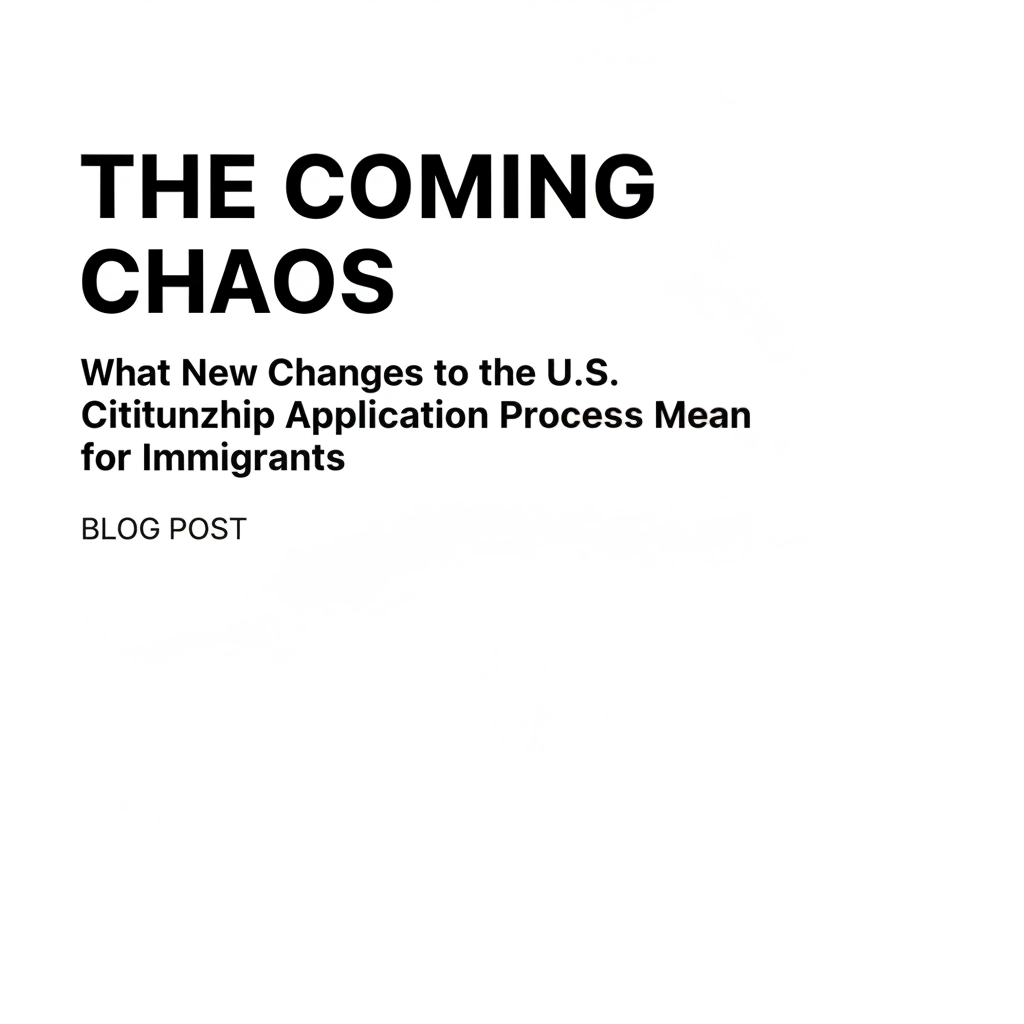


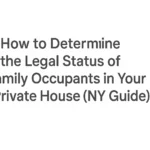
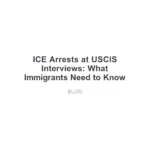
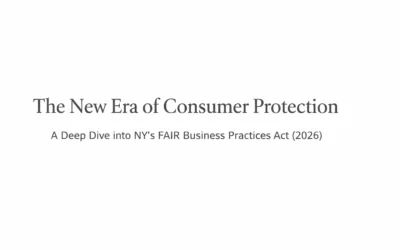

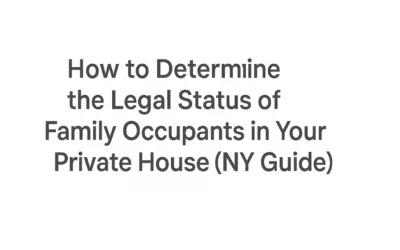
0 Comments